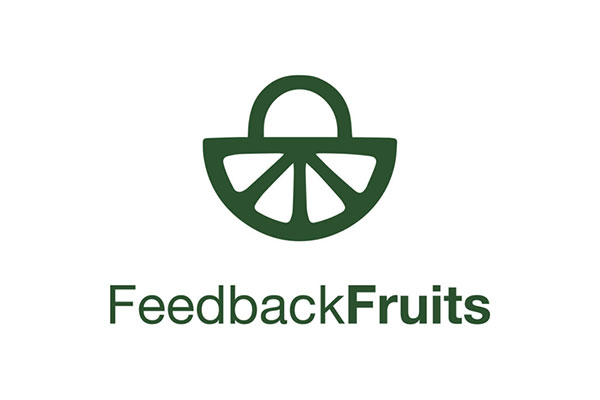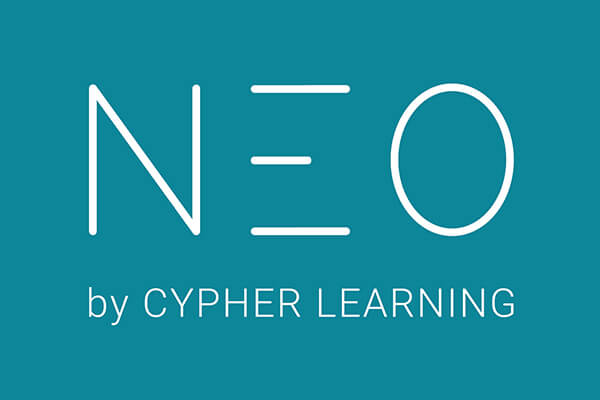Submission and Review Process
Call for Reviewers
Reviewers are needed for ASCILITE 2021, and your support will be very much appreciated. If you are able to participate in the review process, please register your interest by completing the online form. We will be closing the call around the end of July so please let us know if you can help.
What do you need to do?
- Register your interest here.
- Commit to complete an online review of all assigned submissions by the due date around the end of August 2021
- Adhere to review criteria as determined by the Program Committee
- Advise immediately of any conflict of interest with papers allocated to their review
- If you have any queries, please email the conference organisers.
Paper Themes
– Learning Design and Learning Analytics
– Hybrid, Virtual and Place-based Education
– Back to the Future: Post-COVID Landscapes
– Leadership, Digital Transformation, Digital Citizenship
– Academic Integrity
– Open and Inclusive Practice
Type of Paper accepted for submission and/or virtual presentation:
- Full papers – 10 pages
- Concise papers – 5 pages
- Extended Abstracts – Pecha Kucha – 500 words
- Posters – 500 words
- Symposia – Panel Session – 500 words
- Pre-Conference Workshops – 1,500 words
Note: Authors are allowed to be the lead on one paper only
Full Papers
Full papers may feature the following:
- Significant theoretical reviews;
- Reports on medium to large scale research, evaluations, developments or project;
- Research studies in areas of innovative educational practice, or case studies;
- Rationale – forum for discussion of key directions in research informed practice.
Presentation format
- 20-minute presentation plus a 5-minute Q&A (then 5 minutes enabling a changeover).
Submission format
- 10 pages maximum (including APA 7th Edition references) developed on the full paper submission template which is author de-identified.
- Accepted full papers should address the reviewers’ recommendations; be revised on the accepted full paper template which includes author details.
Review Criteria
Double blind peer review based on the following criteria:
- Relevance to conference theme, sub-themes and intended audience;
- The paper is original, and clearly identifies broad and insightful implications for theory and/or policy and/or practice;
- Clearly situated in current literature and/or policy with well-articulated conceptual or theoretical framework and related research questions that address a novel issue(s);
- Adopts an appropriate research methodology for the purpose of the paper;
- Insightful critical analysis and interpretation that leads to clear, logical findings, conclusions and implications for theory and/or policy and/or practice;
- Ease of reading, grammar, spelling, format, and referencing details.
Concise Papers
Concise papers may feature the following:
- provide a forum for discussion of key directions in research informed practice;
- the presentation of works in progress;
- reports on specialised topics;
- position papers;
- pilot studies; or
- brief reports on innovative practice in technology supported teaching and learning.
As a general guide, a concise paper might include background information, a description of the work undertaken, results achieved and discussion or conclusions.
Presentation format
- 12-minute presentation plus 3-minute Q&A (then 5 minutes enabling a changeover).
Submission format
- 5 pages maximum (including APA 7th Edition referencing) developed on the concise paper submission template which is author de-identified
- Accepted concise papers should address the reviewers’ recommendations; to be revised on the accepted concise paper template which includes author details.
Review Criteria
Double blind peer review based on the following criteria:
- Relevance to conference theme, sub-themes and intended audience;
- The paper is original, and clearly identifies broad and insightful implications for theory and/or policy and/or practice;
- Clearly situated in current literature and/or policy with well-articulated conceptual or theoretical framework and related research questions that address a novel issue(s);
- Adopts an appropriate research methodology for the purpose of the paper;
- Insightful critical analysis and interpretation that leads to clear, logical findings, conclusions and implications for theory and/or policy and/or practice;
- Ease of reading, grammar, spelling, format, and referencing details.
Extended Abstracts – Pecha Kucha
Extended Abstracts are an opportunity to share and showcase innovative Technology Enhanced Learning (TEL) practice through a Pecha Kucha presentation. Extended Abstracts may feature practice-based examples such as Scholarly Practice, learning innovations, professional development innovations, outcomes of communities of practice, etc.
Abstract format
- 500 words not including references, using ASCILITE paper template.
Presentation format
- 20 slides or images, 20 seconds each, auto advanced, See https://www.pechakucha.com for more details;
- 7 min presentations with 1 min changeover, with Q&A for 5 min following 3 presentations;
- Each session will run for 1 hr, incorporating 2 groups of 3 Pecha Kucha presentations.
Review criteria
Blind peer review for Extended Abstracts – Pecha Kucha based on the following criteria:
- Relevance to advancing TEL research and practice;
- Showcasing exemplary innovation of practice;
- Has a theoretical underpinning;
- Applicability to diverse tertiary practice;
- Coherent and logically structured.
Posters
Posters are an opportunity to visually share and showcase projects and development initiatives and discuss these with conference delegates.
Presentation format
- Posters can be shared in a printed and/or digital format, as pre-determined as follows:
- For printed posters:
- A0 or A1 size;
- and may include AR elements and/or QR codes.
- For digital format (for those who are remotely presenting only):
- Full poster needs to be able to be viewed on one screen;
- A maximum of 6 slides to zoom in on sections.
- For printed posters:
Submission format
- 500 words not including references, using the ASCILITE Poster template
Review criteria
Double blind peer review for Posters based on the following criteria:
- Relevance to advancing TEL research and practice;
- Showcasing exemplary innovation of practice;
- Has a theoretical underpinning;
- Applicability to diverse tertiary practice;
- Coherent and logically structured.
Symposia – Panel Session
Symposia (also known as panels or debates) provide an interactive platform to:
- challenge or defend a position, theory, model or concept;
- identify areas of dispute;
- offer alternative interpretations of well-known studies and findings;
- bring together experts or impassioned colleagues to explore a topic while involving the audience;
- typically involves a panel of presenters in discussion or debate of a topical issue.
Presentation format
- a 55-minute presentation including Q&A (then 5 minutes enabling a changeover for rooms).
Submission format
- 2 pages maximum (including APA 7th Edition referencing) a submission template should be provided, which includes the following:
- An outline of the focus area with reference to relevant theoretical frameworks, research studies and references;
- A summary of the ideas to be explored and why the topic will attract an audience;
- Names of proposed panel members and a description of the range of views that panel members will represent;
- An outline of the symposium format, including strategies to engage those attending;
- Details of the intended audience and expected outcomes; and
- What the key takeaways might be for delegates.
Review criteria
Symposia will be reviewed based on the following criteria:
- Presents on a relevant contemporary topic to the conference theme and streams;
- Presents different perspectives of the chosen theme;
- poses questions and/or raises points for participants to debate; and
- with the contributions from the delegates, extends an aspect of knowledge or that new ways of understanding may emerge.
Pre-Conference Workshops (on Sunday 28 November 2021)
Workshops constitute the conference’s most direct contribution towards professional development in educational technology and related topics. Workshops enable participants to work with experts in specific areas to acquire knowledge, enhance skills and develop broader perspectives. These are not research presentations.
Submission Format
- 1,500 words maximum (about three pages, and include the following information):
- Presenters’ name/s, contact information and organisation;
- Workshop title;
- Clear statement of the objectives of the workshop;
- A detailed description of the workshop format including activities workshop participants will be expected to engage in;
- Intended audience and degree of expertise required by workshop participants;
- Session room and technical requirements;
- Maximum and minimum participant numbers.
Presentation Format
- Enable detailed discussion and interactive consideration of substantial topics and issues.
Review Criteria
- Adhering to conference themes
- Number of workshop places available in program
- The outcomes of reviews for workshops will be returned to the presenters at the same time as full and concise papers are provided to authors.
Other considerations
- Approximate per person fees for ASCILITE workshops are $150.00 for a half-day workshop and $300.00 for a full day workshop. Workshops offered by ASCILITE SIGs will be offered at a reduced cost.
- Workshop presenters are expected to provide all required materials for their participants.
- Once registrations have closed, presenters will be informed if their workshop will go ahead.
If a workshop is cancelled due to insufficient numbers, those that have registered for the workshop will be informed and offered the option of enrolling in another workshop or having their money refunded.










